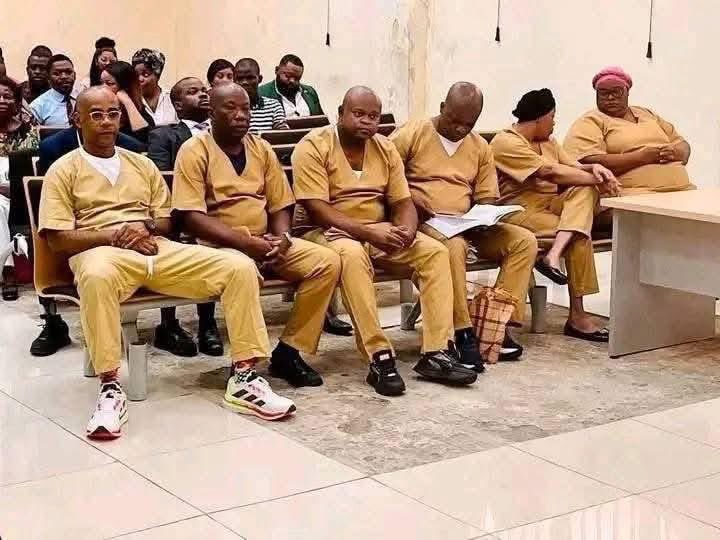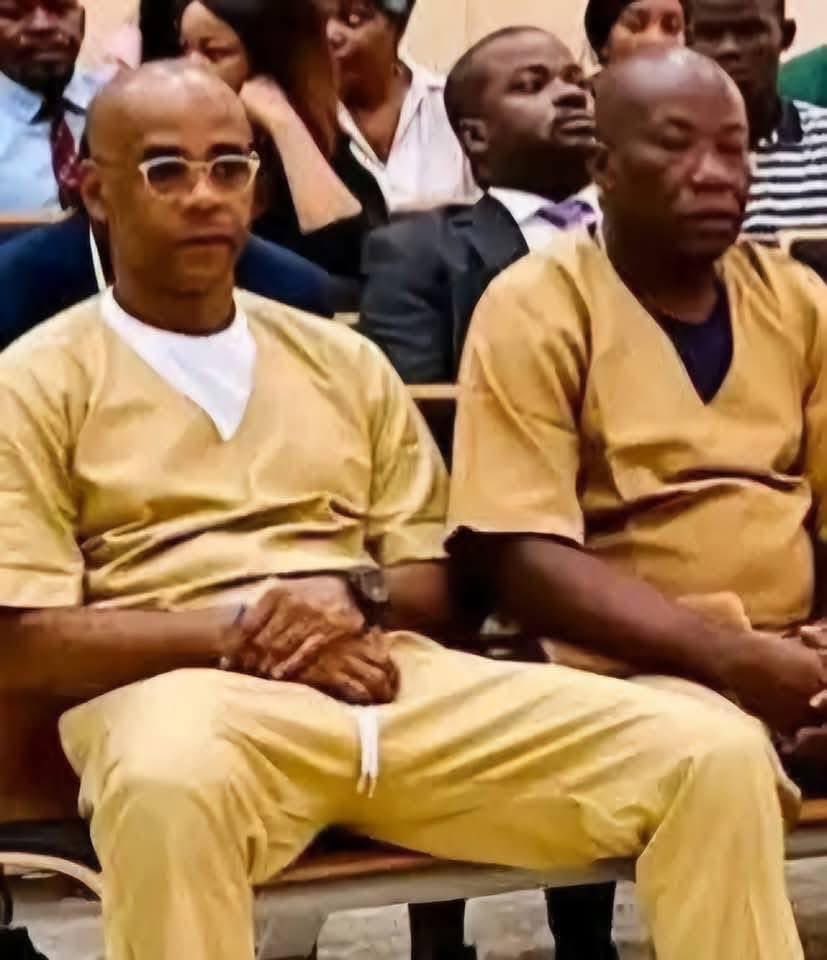Sex scandal: Did court sentence Baltasar Engonga to 18 years in prison?

Baltasar Ebang Engonga on trial—not sentenced yet
Despite growing social media claims that Baltasar Ebang Engonga, the former Director-General of Equatorial Guinea’s National Agency for Financial Investigation (ANIF), has been sentenced to 18 years imprisonment, DUBAWA, a West African fact-checking organisation, has confirmed that he is only currently standing trial. The distinction is crucial as many misleading posts have blurred the lines between an ongoing prosecution and a final court judgment.
From Anti-Corruption Boss to Defendant in High-Profile Trial
Baltasar Engonga was once seen as the face of Equatorial Guinea’s anti-corruption efforts. As the head of ANIF, his mandate was to tackle financial crimes and uphold transparency in public finance. However, his rapid fall from grace began in late 2024, when investigations into financial mismanagement at the Ministry of Finance implicated him.
The situation escalated when authorities reportedly uncovered hundreds of explicit videos involving Engonga and multiple women, including the wives and relatives of high-ranking government officials. The scandal shocked the public and leadership alike, leading to his swift dismissal by presidential decree in November 2024. The videos, allegedly stored on CDs and digital devices retrieved from his office, turned the case into not just a corruption probe, but also a national morality crisis.

Clarifying the Legal Status: No 18-Year Sentence Yet
Many social media users have shared content claiming Engonga has already been sentenced to 18 years in prison. However, according to a detailed fact-check published by DUBAWA, these assertions are false and misleading. Engonga is currently undergoing trial and has not yet been convicted by any court in Equatorial Guinea.
DUBAWA’s verification shows that while the Public Prosecutor is demanding an 18-year sentence, the court has not delivered a final verdict. The trial is still in progress, and Engonga remains in detention at Black Beach Prison in Malabo, awaiting the outcome of the legal process.
DUBAWA’s findings are based on a thorough review of official court proceedings, public statements, and verified local reports. The organisation cautioned against circulating premature conclusions that distort the integrity of the judicial process and misinform the public.
Details of Charges Against Engonga
The Public Prosecutor has laid out a list of serious charges against Engonga, including:
-
Embezzlement of public funds
-
Illicit enrichment
-
Abuse of public office
According to prosecution filings, the state is requesting:
-
8 years imprisonment for embezzlement
-
4 years and 5 months for illicit enrichment
-
6 years and 1 day for abuse of office
-
A fine of 910 million CFA francs (approx. US$1.5 million)
-
Permanent disqualification from public office
The prosecution claims Engonga used his powerful position to divert funds meant for state operations, manipulated budgets, and misused institutional platforms for personal gains—both financial and sexual.
A Defence Built on Bureaucracy and Survival
Engonga’s defence team has argued that the ANIF had no independent budget, and that its operations were often financed through delayed or partial fund releases from the Ministry of Finance. His lawyers claim that he merely redirected insurance contributions and service funds to keep the agency functional.
They have also insisted that any payments were authorized and that the government itself failed to support the agency’s infrastructure. However, these arguments have done little to sway public opinion, especially in the wake of the scandalous videos that have dominated headlines across the country and region.

Sex Scandal Sparks Reforms Across Public Institutions
In response to the scandal, Vice President Teodoro Nguema Obiang Mangue, son of the President, ordered sweeping reforms across government offices. Among the new measures:
-
Installation of CCTV cameras in all public offices to curb misconduct
-
A ban on sexual impropriety in the workplace
-
Renewed emphasis on morality and public decency among civil servants
The Vice President also addressed the potential public health risks associated with the scandal, alluding to the number of women Engonga was allegedly involved with and the power dynamics that may have been at play. The situation has sparked debates about consent, workplace ethics, and the abuse of official influence.
Why the Distinction Between ‘On Trial’ and ‘Sentenced’ Matters
As DUBAWA highlighted, misreporting on criminal trials—especially high-profile ones—has a damaging effect on both judicial integrity and public trust. The premature declaration of a sentence that has not been handed down creates false narratives, undermines due process, and may even prejudice court outcomes.
The fact-checking organisation has urged journalists, bloggers, and the public to wait for verified outcomes before drawing conclusions. In its report, DUBAWA reiterated that Baltasar Engonga is only on trial at this stage, and the court’s decision is still pending.
What Happens Next?
All eyes remain on the Malabo courthouse, where Baltasar Engonga’s trial is expected to continue through July 2025. The proceedings are being closely watched by international observers, Equatoguinean citizens, and civil society organisations who see the case as a litmus test for government accountability and justice in the country.
While many believe the revelations are part of a wider political purge, others view it as a long-overdue reckoning with corruption and moral decay within state institutions.
Equatorial Guinea’s former financial crimes boss, Baltasar Engonga, is facing serious corruption and misconduct charges. However, claims of an 18-year sentence are not only false but harmful, as they ignore the fact that no verdict has been issued yet.
As DUBAWA rightly confirmed, Engonga is on trial, not convicted, and the public must resist the temptation to declare judgment before the courts do.

